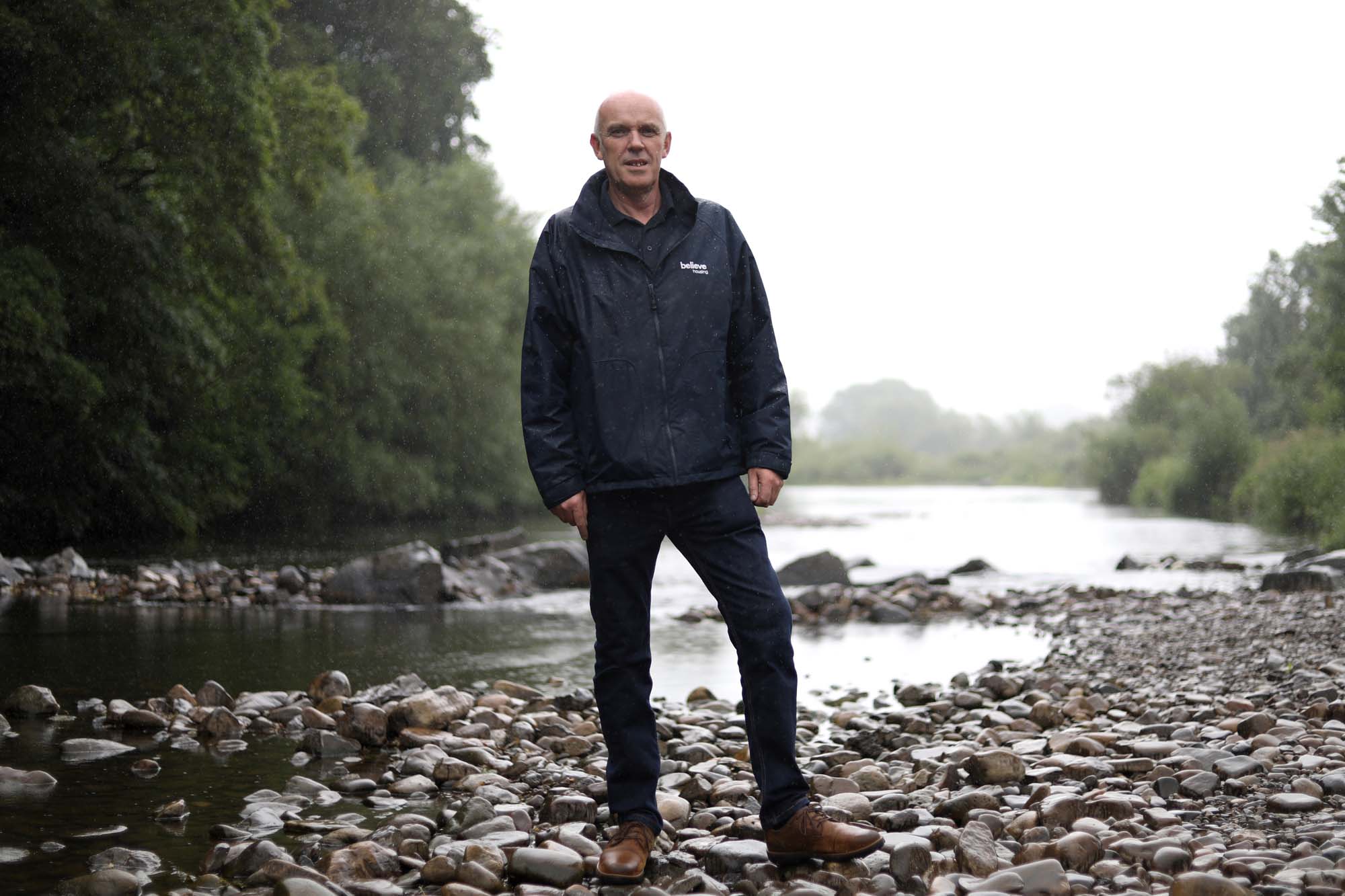new heat network regulations
From Tuesday 27 January 2026, Ofgem (the energy regulator) will become the official regulator for all heat networks.
Read in full
From being chased with a claw hammer to being described as the father-figure that helped a teenager turn her life around, Steve Green has experienced the highs and lows of working in our Safer Neighbourhoods Team.
After 12 years in the RAF Police, Steve returned to civvy street as a neighbourhood warden with the former Wear Valley District Council.
The role led him to believe housing where he is now a Safer Neighbourhood Officer, dealing with antisocial behaviour and tenancy breaches in the west of County Durham.
“The hope is always to resolve an issue long before enforcement or legal action is needed,” he says.
“Because, ultimately, we want people to live safely and happily in our homes.”
The role
When believe housing gets a report of antisocial behaviour, an officer from the Neighbourhood or Safer Neighbourhood Team visits the complainant to understand the issue and offer support, before speaking to the alleged perpetrator.
In Steve’s experience, that first conversation can be difficult but is sometimes enough to diffuse a situation.
He says: “Antisocial behaviour can really harm someone’s mental health and quality of life, yet some people just don’t realise the impact they’re having on their neighbours. Sometimes making that clear can help resolve it.
“What we don’t want is to let a situation escalate. They can be difficult conversations to have, we put ourselves in the firing line to tackle an issue head-on and have to manage expectations on both sides. I guess my tolerance levels are quite high, I can take the brunt of people’s frustrations to try to reach a peaceful outcome.”
But there are times when enforcement or legal action is required.
“All the time we’re dealing with a complaint, we’re supporting the victim and building up a case for if it goes to court. We’re gathering evidence and making notes, to prove we’ve offered a perpetrator support to change and warned them about potential injunctions or eviction.
“Unfortunately, I’d say we’ve had more of those cases in the last year or so than in the previous 15 years. It’s not a quick process, which can be frustrating for a victim.”
Challenges
“People often think that once they’ve complained and told us about something it’s off their hands. But, if we do take legal action we need their support, which can be hard if they fear repercussions.
“We also work closely with our partners such as Durham County Council and the police, but there are challenges. Communicating and sharing information can be tough. On the ground I work with some brilliant people but because everybody’s resources are stretched, and people move roles now more than they used to, it can be difficult to have consistency and to get information we need quickly.
“There’s no simple answer, it comes down to manpower, every agency is saying the same, it’s about the level of resources. If everyone is pulled in many directions, problems just get moved around. To address the root of a problem we need to work together as efficiently as possible.”
A patch spanning 26 miles

Steve’s patch covers about 4,000 properties in towns and villages including Bishop Auckland, Crook, Willington, and throughout rural Weardale.
“It’s about 26 miles from one end to the other and the communities can have very different issues,” says Steve.
“Working here for so long I know the area and lots of the tenants well, I’ve got strong community links which helps.
“Most of these communities, especially the rural ones, have a pretty settled population with generations of the same families.
“The rural and farming communities don’t face quite as much deprivation as urban places, there isn’t the same level of substance misuse. Antisocial behaviour tends to be lower because people are more connected to the place they live in and their neighbours. But when there is an issue, it really hurts.
“Ultimately what we do is about sustaining communities. If we don’t deal with an issue, it can spread and people stop wanting to live there.
“That’s why our role is so important and why it’s rewarding when things go well.”
Highs and lows
During 16 years working in neighbourhood roles, Steve’s experienced both tough times and rewarding ones.
“I’ve had the tyres slashed on my car.
“One gentleman came at me, running down the path with a claw hammer. Thankfully the police had him arrested within 10 minutes,” he says.
“But I do enjoy it when you get to resolve the situation and help people live peacefully alongside one another.
“One girl I’ll never forget was about 15 or 16 when I first encountered her. I’d see her in and around properties where people were taking drugs and I’d talk to her. Years later she said “if it wasn’t for you Steve, telling me what I needed to do to sort myself out I could have lost my home. To be honest, I wish my dad was more like you”. That was a lovely thing to hear, particularly as I see a living successfully now.”
From Tuesday 27 January 2026, Ofgem (the energy regulator) will become the official regulator for all heat networks.
Read in full
If you live in a believe housing home and haven’t been working for a while, now could be a good time to look at the support available.
Read in full
believe housing and Karbon Homes have worked together to unlock government funding, paving the way for 115 new social and affordable homes in the northeast of England.
Read in full
Managing household costs can be challenging, especially during the colder months. If you’re worried about heating bills or need help with your finances, there are several types of support available.
Read in full